ESCAPE
Ghosts of genocide haunt beautiful, clean and joyless Rwanda
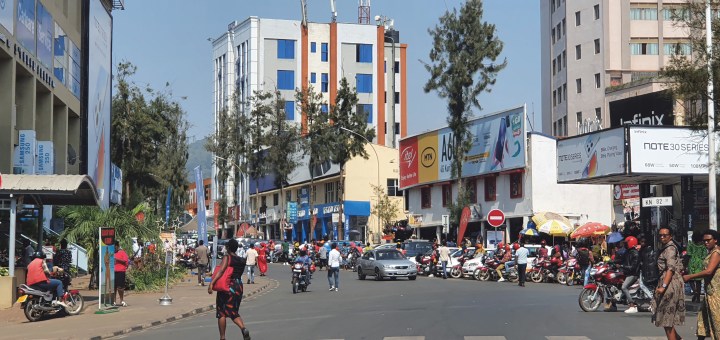
After 25 days on the road, some of them exhilarating and some simply exhausting, the intrepid travellers and adventurers Bridget Hilton-Barber and her friend Hugh Fraser have finally reached Kigali in Rwanda. They discover a booming, litter-free city that is under tight control of the authorities, as well as ever-present reminders of the genocide that tragically claimed the lives of hundreds of thousands of citizens.
‘We’ve driven all the way from South Africa through Botswana, Namibia, Zimbabwe, Zambia, Tanzania and Burundi to get here,” I said to the charming woman at the hotel reception desk. “That’s a long day,” she replied, deadpan. “You must be very tired.”
We were exhausted. It had taken us 25 days and 5,500km to reach Rwanda’s capital city from South Africa. What a joy to be hosted at the upmarket Kigali Serena Hotel after a long stretch of self-catering, camping and relentless driving.
The security was tight. All cars entering the hotel are checked with a bomb detector, and all guests must put their belongings through an X-ray machine at the entrance.
Set off a boulevard in the CBD, Kigali Serena is the preferred haunt of businesspeople, dignitaries, ministers, politicians, wealthy American tourists and the city’s elite. It’s an international hotel, famed for its extravagant breakfast buffets, designer restaurants and prime location, a few hills away from President Paul Kagame’s sprawling presidential palace. The rooms are gracious and spacious with beds the size of small meadows, and we briefly felt like pop stars.
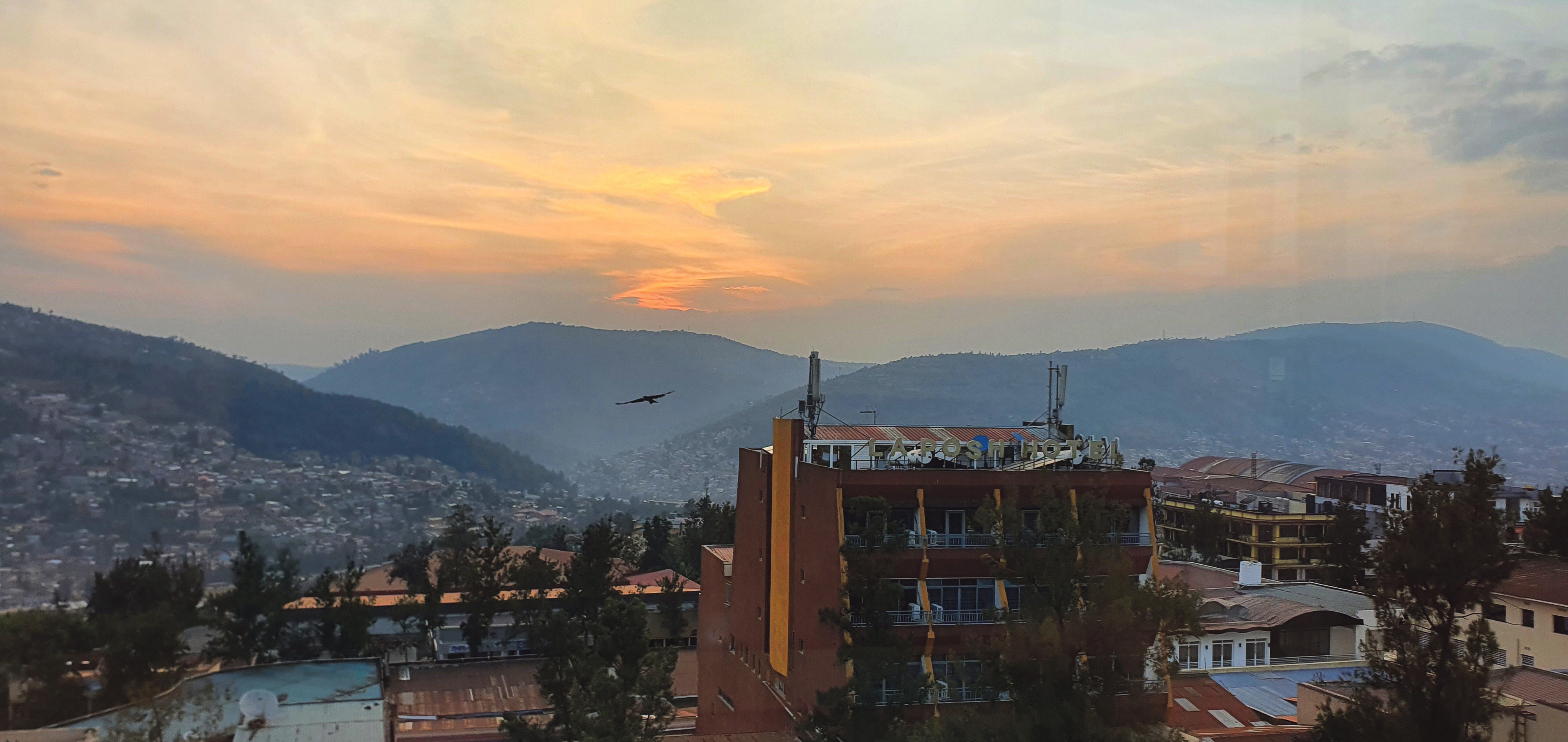
Sunset from the rooftop bar at Hotel Isimbi. (Photo: Bridget Hilton-Barber)
A few nights later we’d be in a budget joint off the central city, backing onto a noisy restaurant scullery, with only samoosas and whisky for dinner. But right now the flags were flying and we ended up having our first dinner at a place nearby called Heaven, where they served fancy cocktails, delicious local lake sardines and good vibes. And banana wine, which was strangely lovely in a non-Cape-winelands kind of way.
It had been a long, hot, grumpy afternoon having our small drone confiscated at the Rwandan border with Burundi when we first entered Rwanda.
We’d exited Burundi with little drama and pulled into the Kanyuru border post on the Rwandan side, a series of neat buildings under enormous palm trees with hundreds of swallows.
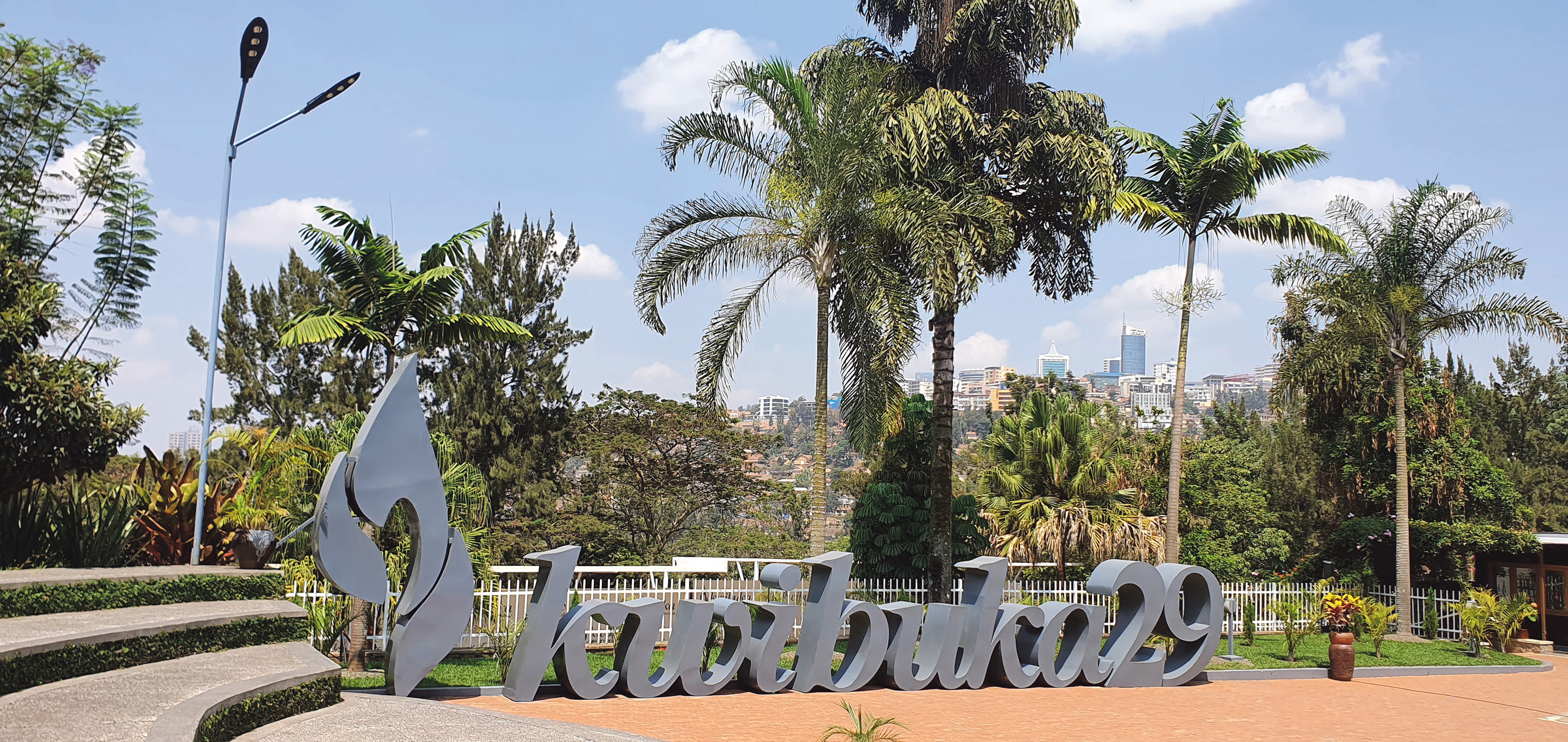
Kwibuka is the slogan of reconciliation. It means remember. (Photo: Bridget Hilton-Barber)
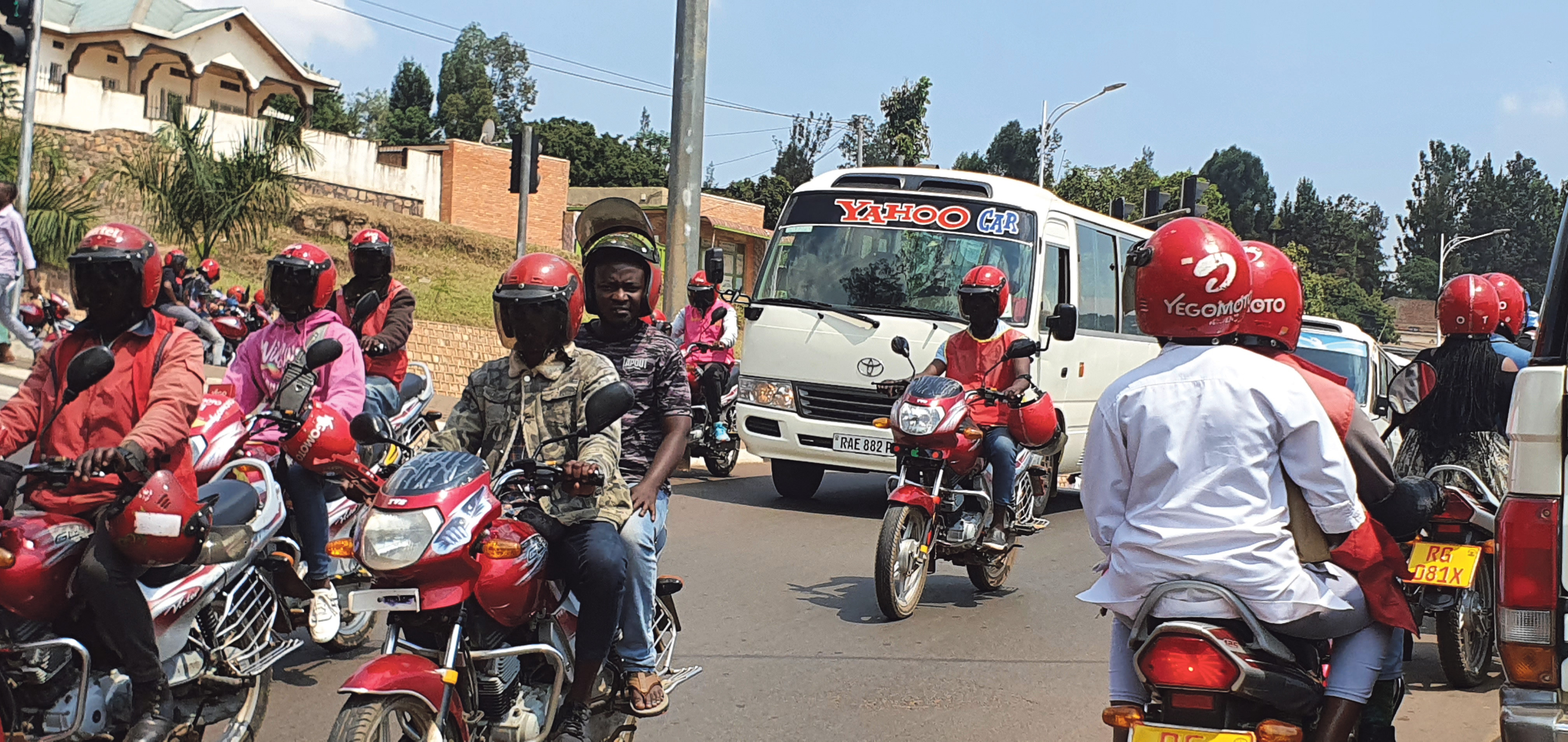
Traffic, mostly made up of motorbikes, is orderly in the city. (Photo: Bridget Hilton-Barber)
The Rwandan border officials strip-searched the car, took everything out and inspected it all closely. The tent, the food boxes, the luggage. Then they came across our drone, which caused a great deal of excitement, albeit not quite the excitement we were after.
To be fair, the official Rwanda tourism website does actually warn people not to bring drones. Somehow we just didn’t clock it, and we had no idea that in order to bring a drone into Rwanda, you needed an operator’s certificate from the Rwandan Civil Aviation Authority, which is basically the equivalent of a commercial pilot’s licence.
Read more in Daily Maverick: The hot springs and deliciously torrid tales at the end of Zambia’s road from hell
Despite protesting that we were simply innocent tourists looking to take mind-blowing footage of their beautiful country, the Rwandans gave no quarter whatsoever and, after several hours of begging and pleading, we had no option but to enter Rwanda drone-less, with a stamped, handwritten note saying we could pick up the drone at the Rusumo border with Tanzania when we exited again. What were the chances?
Amazingly, it was indeed waiting for us at the Rusumo border when we left Rwanda for Tanzania a few days later.
Clean and caring
Rwanda has the fastest-growing economy in Africa, and Kigali is an impressive city with modern buildings, diverse restaurants and shops, beautiful green spaces, city parks and a sophisticated CBD. Kigali is hilly, with great views, good roads and orderly traffic. Most people use motorbikes to get around, there are no minibus taxis, and in both the city and on the country’s roads there are traffic cameras everywhere, so the speed limit is enforced.
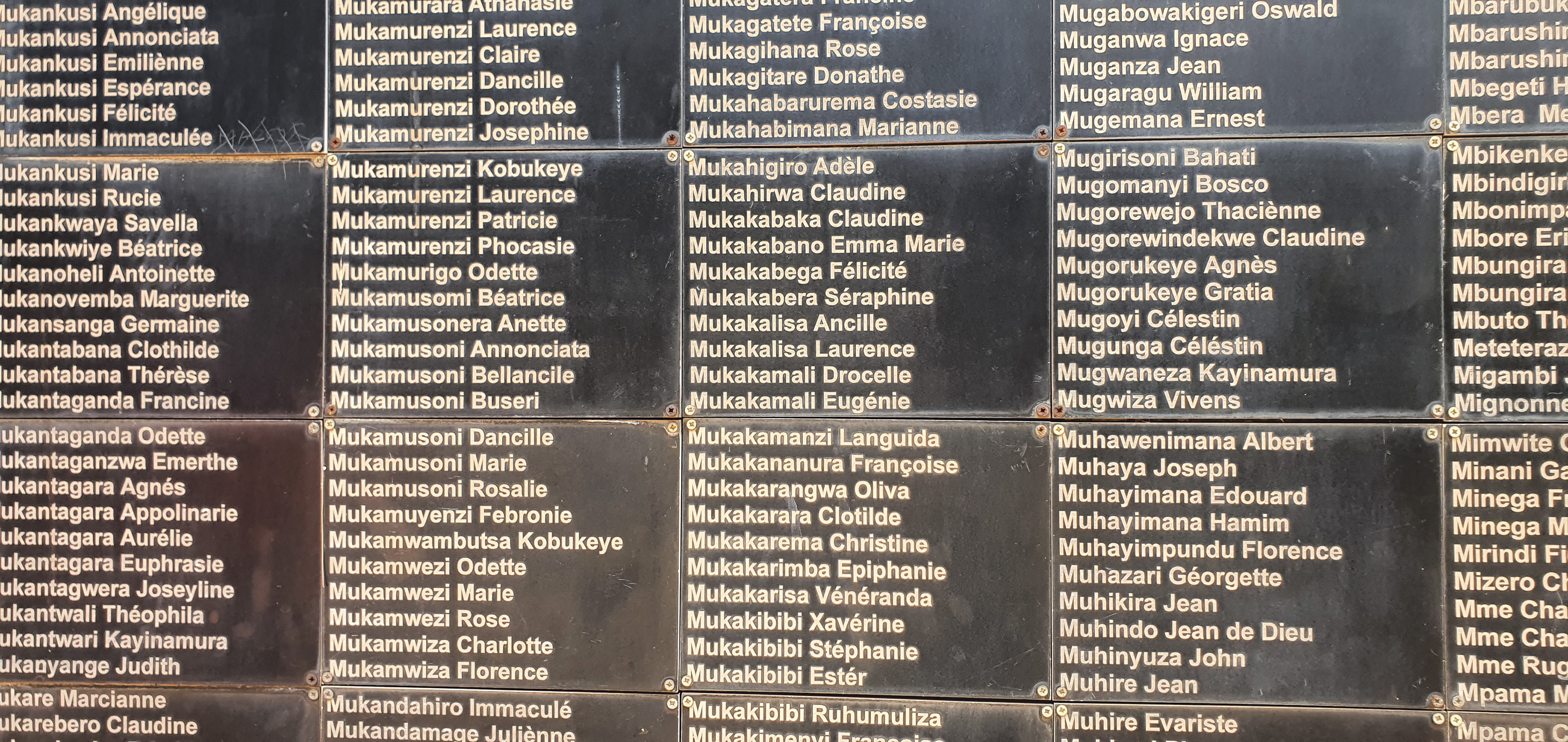
Names of the dead. (Photo: Bridget Hilton-Barber)
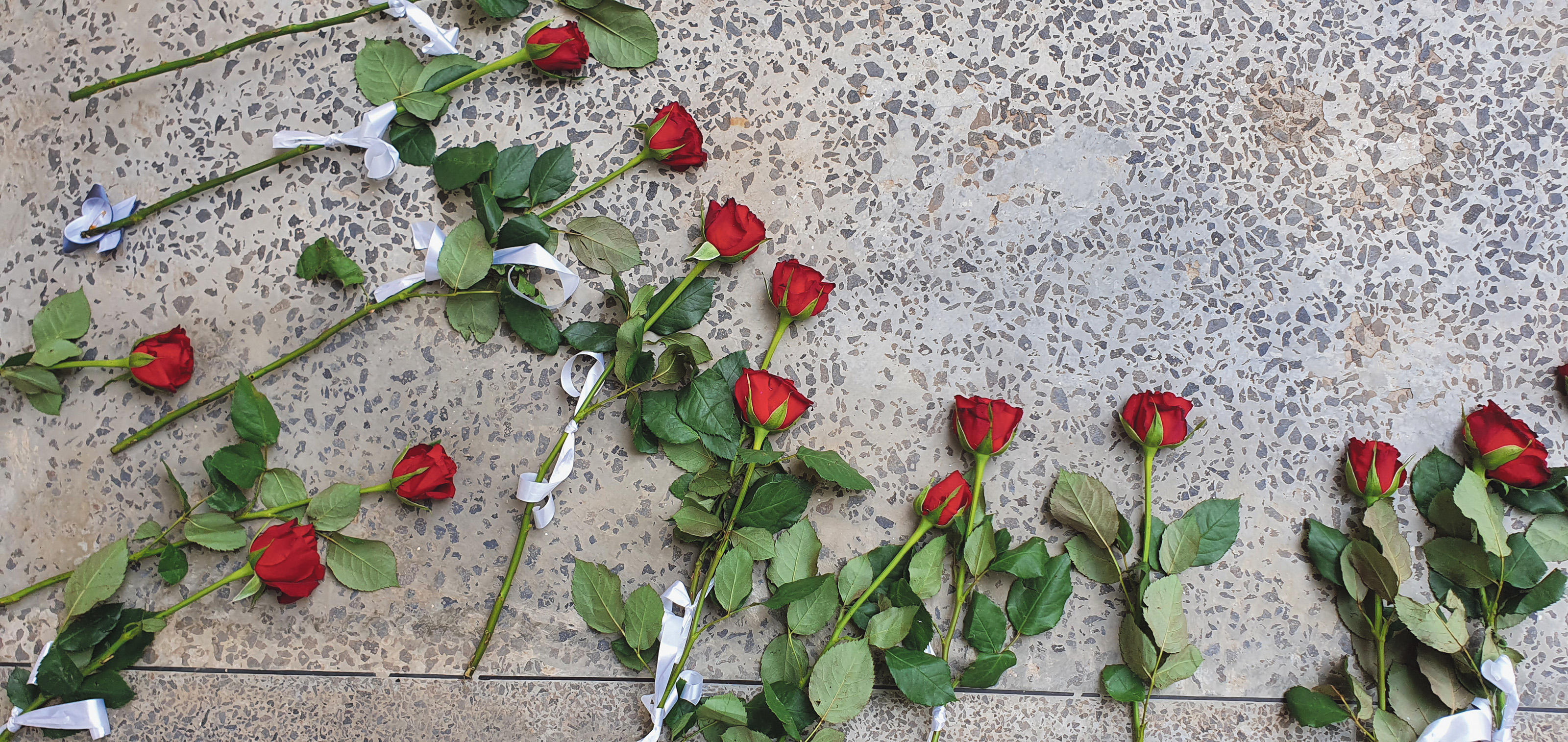
Roses at the genocide museum. (Photo: Bridget Hilton-Barber)
Kigali is also the cleanest city in Africa. In the CBD and surrounds, even in the poorer areas, there is no rubbish, no litter – plastic has been banned here for decades – no leaking drains, no sewage spilling, no collapsed road verges. There is no jaywalking, no public drinking or partying, never mind protesting, and a highly visible police and military presence. On the last Saturday of every month, Rwandans do umuganda, gathering to clean up rubbish, fix public facilities and contribute to community projects. It’s an unfamiliar and wonderful sensation being in such a clean space. It felt calm and caring; it felt proud. But it didn’t feel joyous. The collective trauma of Rwanda is still palpable – the faraway looks in older people’s eyes, their body language, their eerie obedience.
There is no doubt that Rwanda is a benevolent dictatorship and the society is highly controlled. Perhaps this is the only way to bring a nation from violence back to a semblance of normality. Rwanda, after all, has some of the most terrible history.
When South Africans were celebrating our first democratic elections and inaugurating Nelson Mandela as our first president, Rwanda was in the throes of genocide. From April to June 1994, more than 800,000 Rwandans were brutally slaughtered by fellow citizens in a state-led genocide targeting the Tutsi ethnic group. About 75% of the Tutsi population died in the mass killings.
There are hundreds of genocide memorial sites across the country, and local people in Kigali still bring flowers to the Genocide Memorial. About 250,000 people are buried here, and flowers decorate the mass graves alongside the eternal flame.
Read more in Daily Maverick: Breakfast in Botswana, sundowners in Namibia: succumbing to a land of plenty
People wander sad-eyed and silent through the exhibition rooms, which have haunting displays of skulls, clothes, photographs and letters.
The museum also has a section on other genocides that have taken place in the world – in Cambodia, during the Holocaust, in Bosnia – and gardens with spots of repose.
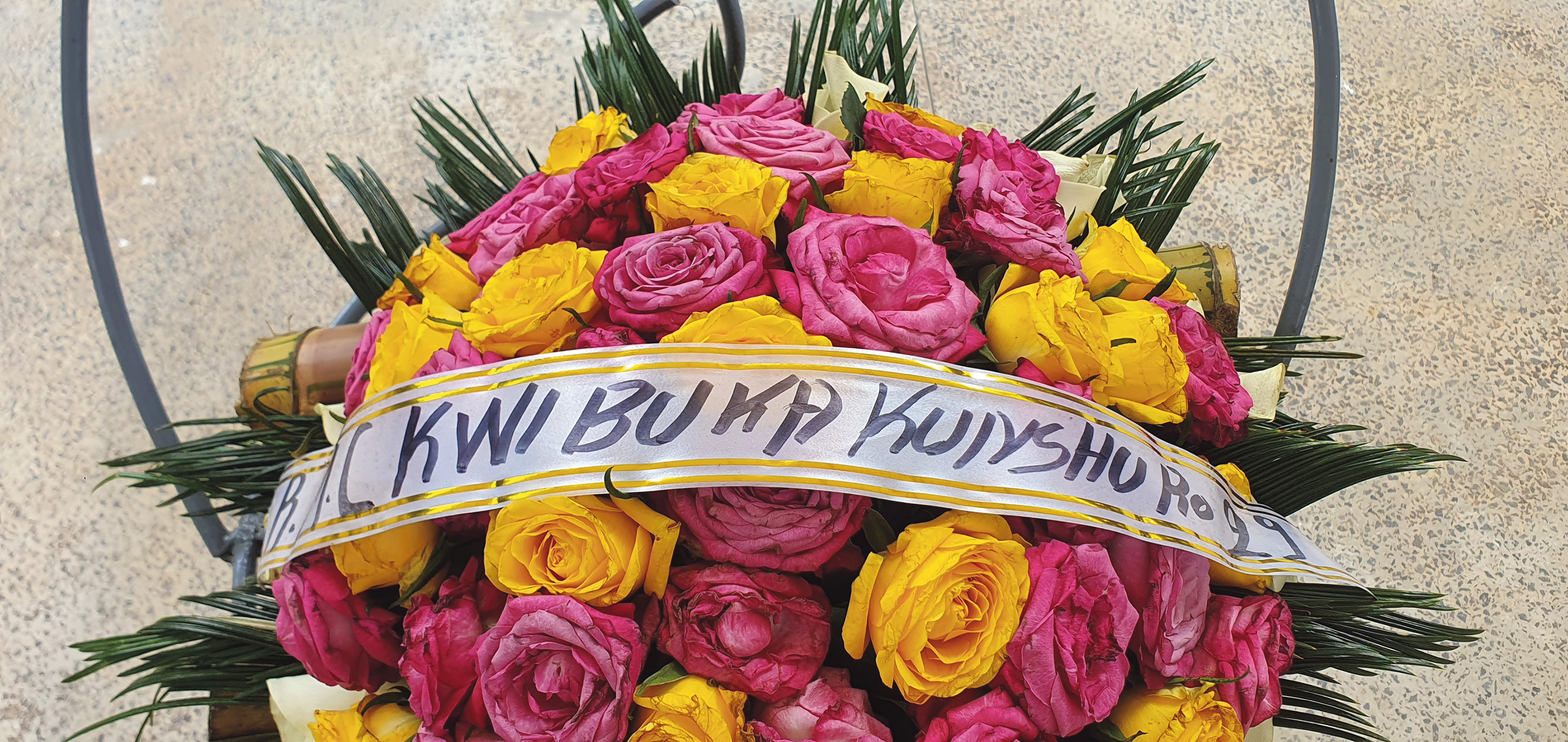
Flowers at the Genocide Memorial. (Photo: Bridget Hilton-Barber)
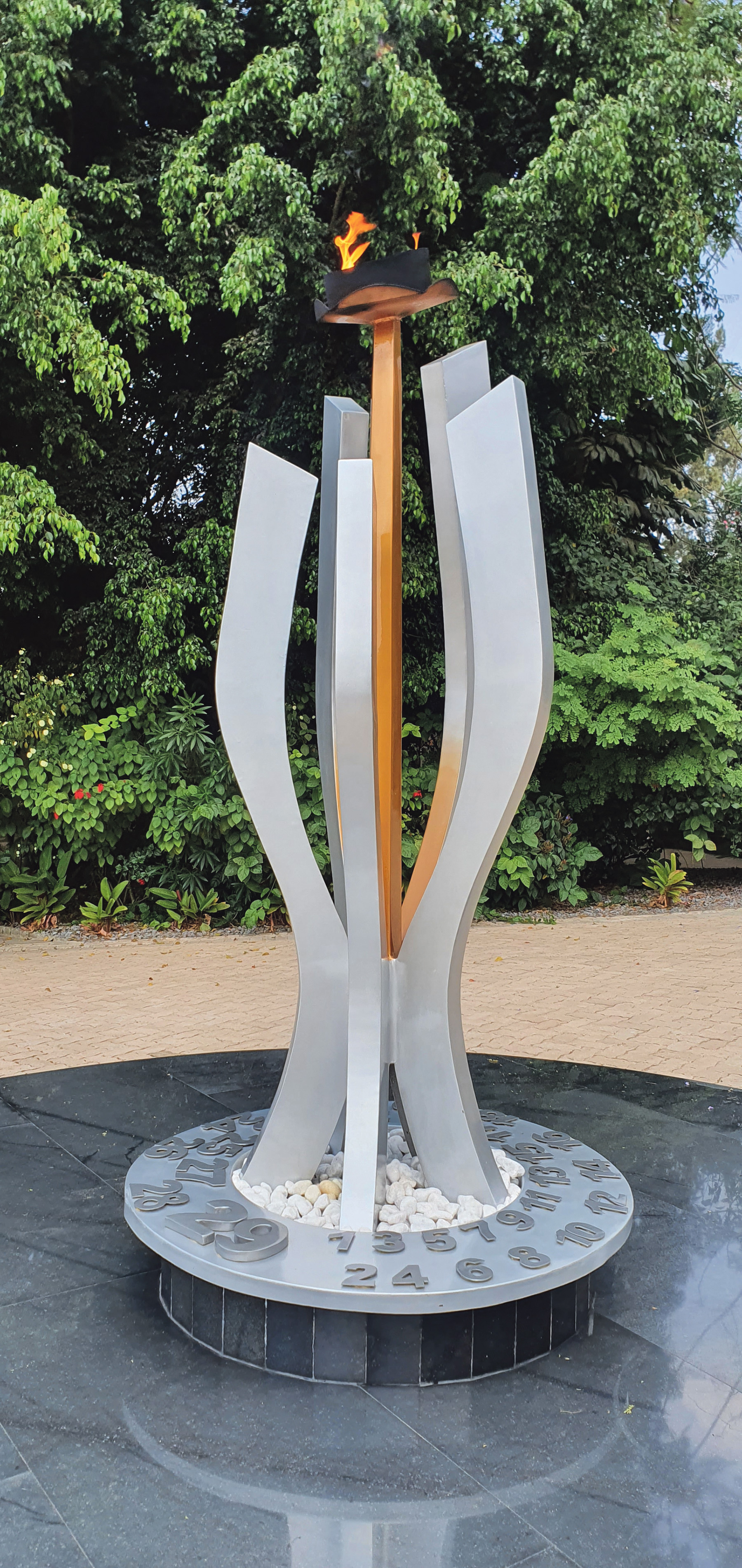
Eternal flame at the genocide museum. (Photo: Bridget Hilton-Barber)
It’s all really hard to grasp. Like most visitors, we sat uncomfortably in the gardens after we’d been through the museum, wondering how a country’s people ever recover from genocide. Kwibuka is the slogan of reconciliation that has been adopted across Rwanda: remember, unite, renew.
Read more in Daily Maverick: Rwanda’s foreign policy objectives appear focused on economic development rather than Africa policing
But how many people walk around today, still haunted by the shadows of indescribable violence? How many adult people here are orphans of the genocide (there were about 300,000 children left without parents)? How many people still remember their dead families, their neighbours, their relatives? The collective trauma of Rwanda is still palpable – the faraway looks in older people’s eyes, their body language, their eerie obedience.
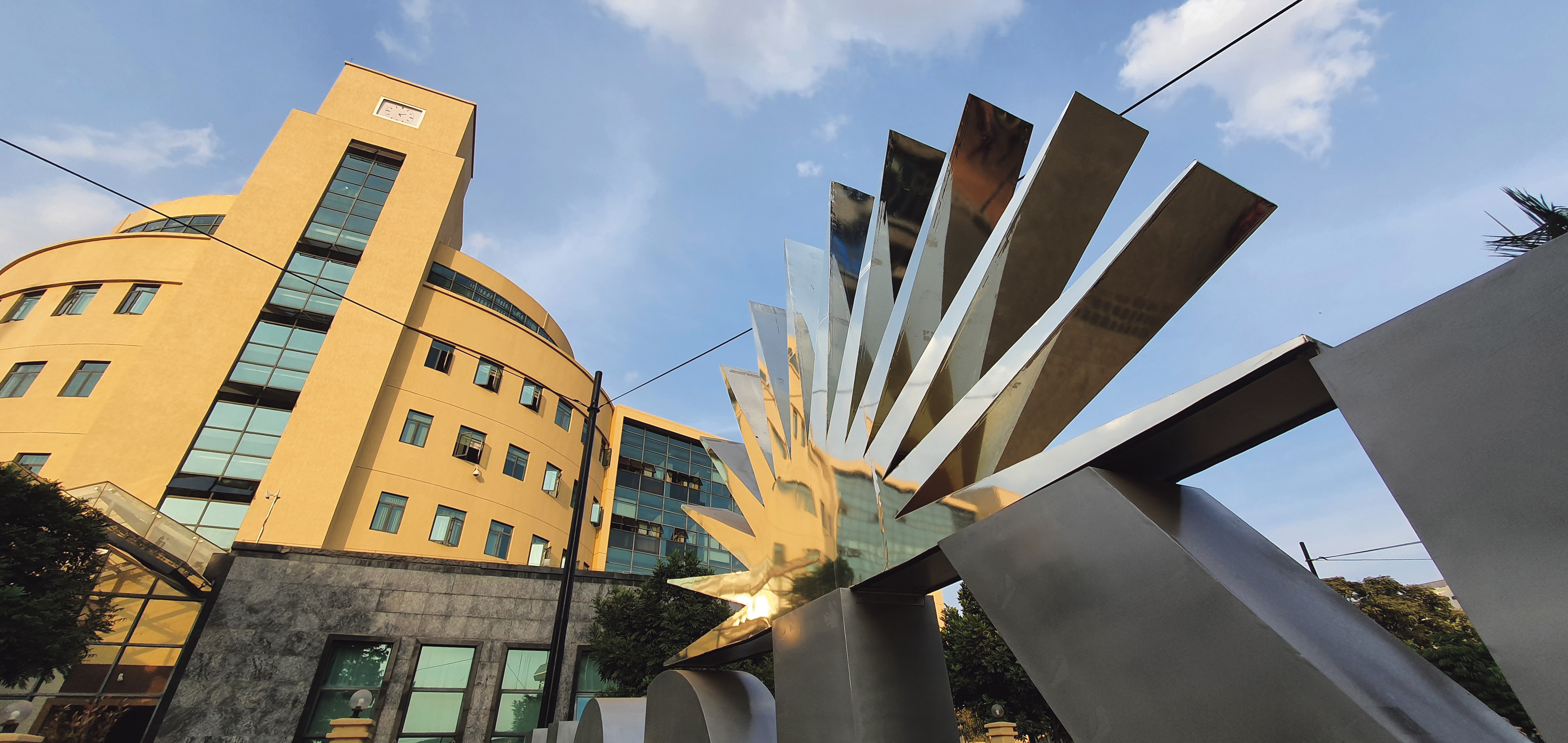
Downtown Kigali. (Photo: Bridget Hilton-Barber)
Known as the land of a thousand hills, Rwanda is famed for its five volcanoes, 23 lakes and numerous rivers, some forming the source of the Nile River. The main tourist attraction is the national parks, some of which still have populations of wild gorillas. At more than R20,000 per person to see the gorillas, we skipped that option, and our plans to visit Akagera National Park were cut short when we had car tyre problems and had to spend an extra day in Kigali hunting down a new tyre, which cost R6,800.
Read more in Daily Maverick: Slowly, slowly getting hassled by cops before relaxing at a beautiful lake lodge in Tanzania
We spent some time driving around the city – there are new buildings and signs of development everywhere. We wandered through the main pedestrian walkway in the central banking district, where there are kiosks, shops and a local market.
Then we checked into Hotel Isimbi, a cheerful budget spot with small, downbeat rooms, but a brand-new rooftop bar called the Bicu Lounge. We sat among happy young people – whose lives can only be understood backwards but must be lived forwards – and watched the sun go down over Kigali. DM
See Visit Rwanda, the Kigali Serena Hotel and Hotel Isimbi.
Our Epic Road Trip was sponsored by ClemenGold Gin.
This story first appeared in our weekly Daily Maverick 168 newspaper, which is available countrywide for R29.
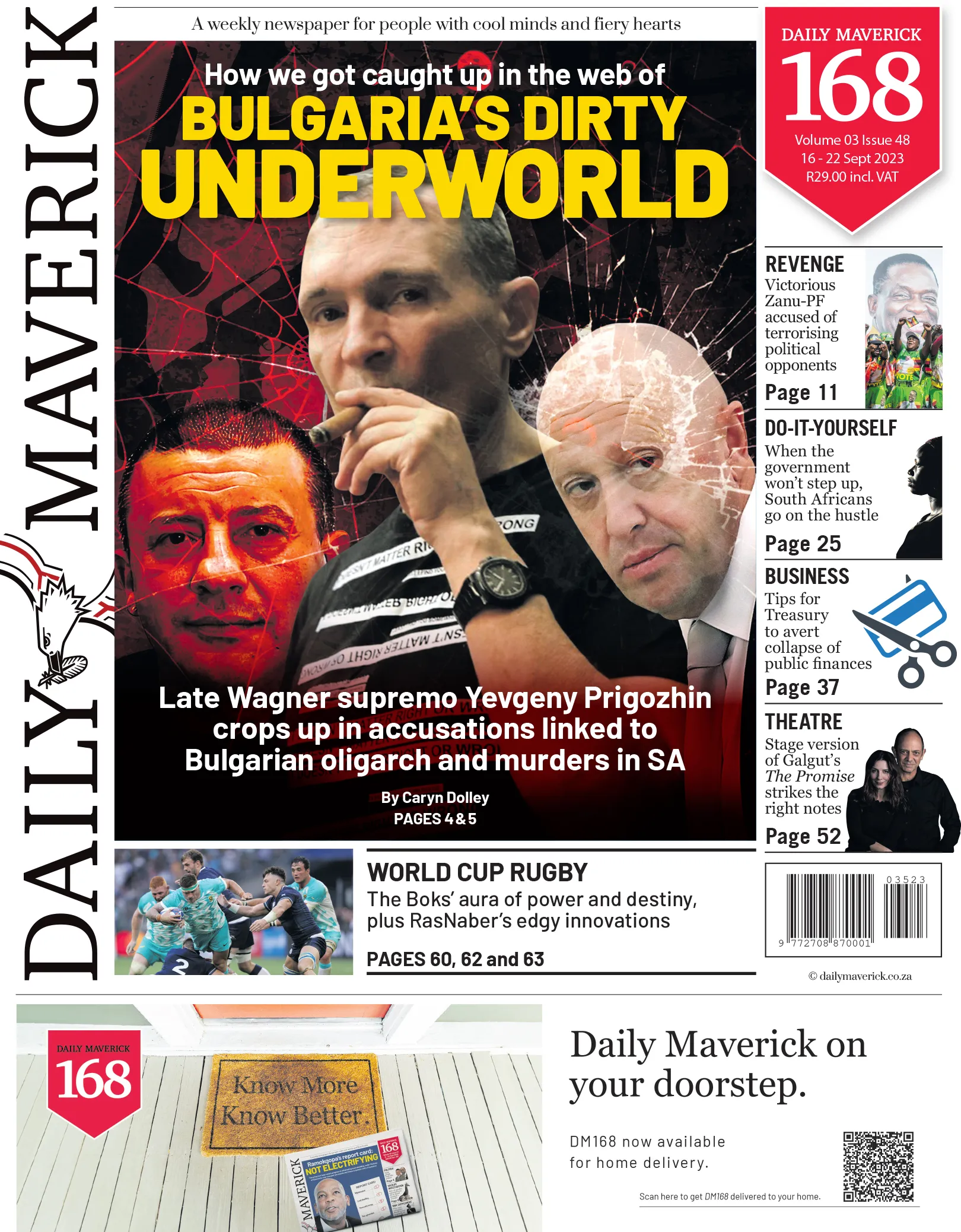


















 Become an Insider
Become an Insider
Comments - Please login in order to comment.